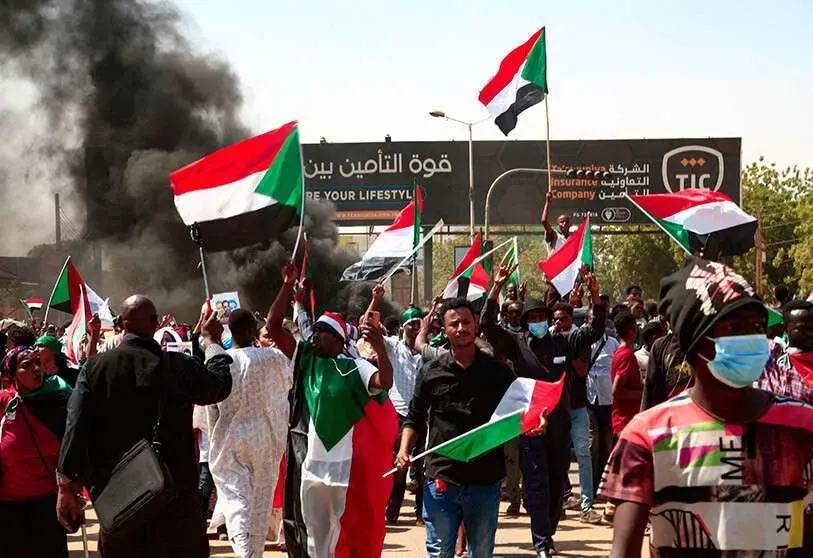Violence worsens the situation in Sudan

The Sudanese are once again taking to the streets in the face of violence by the security forces. This time, the demonstrations have responded to a civilian call that has been staged in a large protest motivated by the resignation of the now former prime minister, Abdullah Hamdok.
Hamdok's resignation has paved the way for the military to return to power, and thus helps Sudan's democratic project to fade away. It is for this reason that thousands of civilians have thronged the streets of the capital, Khartoum, calling for the anti-militarisation of the Sudanese government, as they have done in other cities across the country.

Three protesters have been shot dead by security forces during the protests, witnesses told Reuters. These three killings bring the total number of people killed during the protests to 60, a figure that began to be counted after General Abdel Fattah Al-Burhan's coup d'état last October.
In this latest demonstration, civilians tried to reach the presidential palace to continue exerting pressure on the military because, since the insurgency, the power-sharing agreement and the transition process in the country achieved in 2019 have been halted.

For the military, the takeover was a "correction" that would try to restore security stabilisation in Sudan. However, since the takeover, insecurity has become a daily occurrence among the population. Demonstrations have increased exponentially and violence by military forces has left not only people dead, but also hundreds injured and violently arrested.
These actions have made the Sudanese even more distrustful of the military and Sudan has become a scene of confrontation between civilians themselves. While there is a significant feeling of weariness among the population towards military authoritarianism, another sector has shown itself to be in favour of the return of the military, which has led to an increase in tension among the population itself.

However, the military's abuse of power is leaving the population devastated. According to the Khartoum Ministry of Health, "security forces raided Arbaeen Hospital" and "attacked medical staff" after "firing tear gas inside".
The police also said in a statement that "the demonstrations witnessed a deviation from the peace and cases of aggression and violence by some demonstrators towards the forces present", noting that 60 suspects have been arrested.

The internet and communications continue to be heavily restricted, with the internet and communications being reduced especially in the last hours of the day. These cuts make it very difficult for journalists to work and for the inhabitants to communicate with each other, as they are unable to report abuses against the population. In addition to telecommunications, land connections between the regions have been restricted in areas linking Khartoum to Bahri or Omdurman.
Following the escalation of violence, the Forces for Freedom and Change coalition, the political group that shared power with the military, has demanded that the UN Security Council launch an investigation into the killings and the latest attacks on health facilities.

The day of protests was the first of several rounds of demonstrations expected to take place later this month in response to Hamdok's resignation.
In 2019, Abdullah Hamdok became Sudan's prime minister, bringing hope to a country tired of violence and confrontation. His resignation opens a new episode in Sudanese history as the country struggles to achieve democracy, a system that has never been established in the country.








